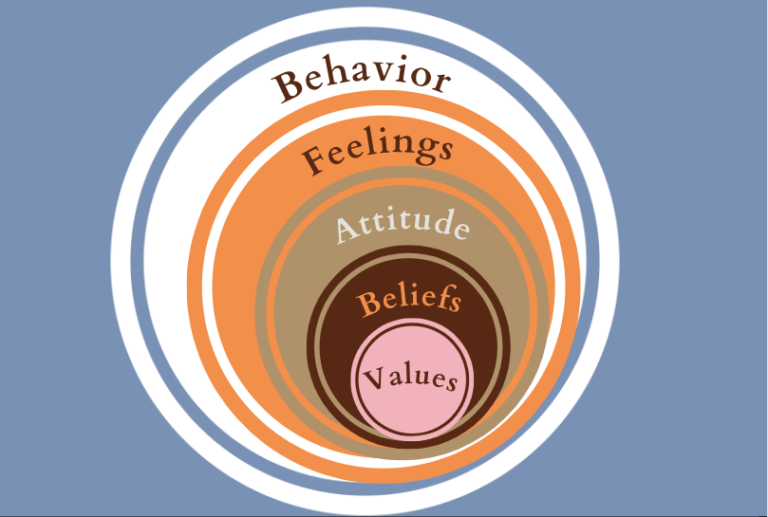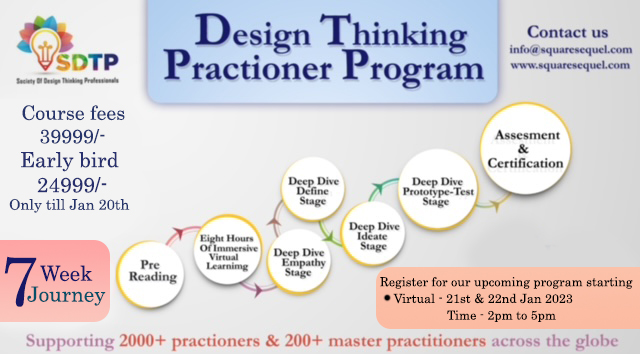Jahnvi seems to find managing people arduous as it is her first time with such a huge responsibility. When she came to know that she is being promoted to manager and will lead her team, she was ecstatic at the moment, however, later on, when she found herself drowned in enormous responsibilities, she was overwhelmed with her position. She knew she was not ready yet for the responsibility, however, she did not back out. Instead, she took the helm of learning about ‘what it takes to be a first-time manager’ and delved into the chasms of research.
In the first article of the series, Jahnvi shared the overview of becoming a first-time manager, and it comprised four aspects of becoming a successful manager – managing self, managing others, managing activities, and managing the environment. Hence, she decided to go one step at a time. As she embarked on the journey, she knew she had to unearth the art of managing herself before managing a team. In other words, she had to understand herself inside out to lead a team to a better and thriving future. She began researching successful businesses, managers, and entrepreneurs to understand what made their ships sail through the tides.
One thing that was common and intrigued her interest was that every successful person ventures into their values and keeps updating them with time to become a better person at work and in life. She emphasized two companies that set their foundations on their values and culture –
Zappos was the first company that took its culture so seriously that its CEO, Tony Hsieh, wrote a book about it – Delivering Happiness: A Path to Profits, Passion, and Purpose where Hsieh explains how making culture a top priority led to Zappos’ success.
Yvon Chouinard, the founder of Patagonia, also wrote a great book called Let My People Go Surfing: The Education of a Reluctant Businessman. He discusses the experiences that shaped him, what inspired him to establish Patagonia and the principles that guide the company’s culture.
A business or company can only flourish when its employees are thriving on an individual level, and so does the culture or values of a company contribute to success when those values resonate with every employee at an individual level because taking care of the values is everyone’s responsibility.
She discovered that she has to take care of her values to begin her journey, and this is how she shares her understanding of identifying her values.
What are Values?

You can only create new value when you protect what is already valuable.
— Jurgen Appelo, Managing for Happiness
Our values are personal guiding principles or life goals that guide our behavior in all aspects of our lives, including at home, work, and in society. The importance of values stems from their purpose of guiding our behavior, feelings, attitudes, and beliefs. As humans, we have different roles, and our behavior, beliefs, feelings, and attitudes keep interacting with those of our peers, friends, and family. We incline toward people who share our core values and beliefs instinctively. Harmonizing our value systems makes our personal or professional relationships successful.
Behavior

It is the action of a person that gets a tag by others based on their perspective. People decide whether an individual’s behavior is good or bad according to their ideologies. When we watch a cricket match, for example, our behavior swings like a pendulum depending on how the team we support is performing. The game is most likely taking place hundreds of miles away, but our behavior is dependent on the team we are rooting for.
Feelings

Whether our feelings are strong or weak, it is visible in our actions or behavior. When we like someone, we act differently towards them than people we dislike. We have to understand the feelings that underpin and fabricate human behavior.
Attitudes

“Attitudes are caught, they are never taught.”
Psychologists define attitude as a learned tendency to evaluate things in a particular way. It includes assessments of people, objects, events, or issues that are frequently positive or negative, and ambiguous at times. The three primary factors that give birth to attitudes are environment, society, and education. For instance, we have to take our footwear off while entering a temple, mosque, or gurudwara, however, it is perfectly all right to walk in a church with our shoes on. Though all the places are meant for worshiping, the attitude we imbibe is different in a church.
Beliefs

This topic has been studied and discussed since time immemorial. It is when we believe something is true without any empirical evidence to prove its viability. We believe in something because we have faith in its existence. It is the gateway to imbuing a positive attitude towards a given situation.
There is nothing right or wrong about beliefs, and it is every individual’s responsibility to be aware of and respect others’ beliefs. While we may not always be aware of our values, understanding them can help us make better decisions that will benefit us in the long run. It could imply choosing a job that offers more variety, change, and spontaneity over one that offers more security and tenure. To know more about beliefs, go to the following link – https://sdtp.co.uk/how-to-make-beliefs-work-for-you/
Now that Jahnvi unveiled the existence of values, she was uncertain about her values and wanted to know how to know her core values. It is the treasure she found while doing her research.
How To Be Aware Of Our Values?

“Values are fundamental beliefs that underpin and guide our decisions and behaviors.”
The decisions we make, whether we realize it or not, are influenced by our values. But what exactly are values? It is a term that is frequently used, however, many of us may struggle to define it. We are often most at ease, content, and free of internal conflict when we can adhere to our values, and the inverse is also true. When we are unable to act by our values, we can feel extremely uncomfortable and unhappy. This discomfort can take many forms, ranging from rage to anxiety, and can be perplexing if we’re not aware of its existence.
Knowing our values has two advantages. When we are clear about our values, we have a solid and guiding foundation on which to rely during difficult times, when important decisions must be made, or when we are being tested. They can also assist us in living well and authentically. Values can inspire us to stay true to who we are or who we want to be by giving us the courage to change situations that cause us to be misaligned.
These are the steps to follow to identify our values:
Reflect on the experiences and pay attention
Begin by paying closer attention to the important decisions you make in your daily life. Observe your decisions with interest. Why do you make them? This questioning will assist you in identifying the value of each option. Keep track of each value you mention and how frequently it appears for at least a week.
Keep reflecting and keep getting insights
When you have the opportunity, consider your choices and the values you have labeled. You’re attempting to distinguish between authentic and inauthentic values here. Consider which options were both comfortable and simple. Which options satisfied you the most? These decisions were most likely influenced by genuine values. Were there any options that made you feel uneasy? Did any of your options leave you feeling uneasy? If they did, they may have been guided by illegitimate values, or you may have made compromises in these decisions.
Take into account different times
Consider the times when you lived easily and serenely, as well as the times when you lived in discomfort. Consider the pivotal moments in your life, the ones that stand out. Consider these experiences and what caused them to be the way they were. It may assist you in identifying and labeling key values. They may highlight times when you were both in alignment with your values and when you weren’t.
Jot down your top values and ponder upon them
Gather and list all of the values that apply to you. You can make the list as long or as short as you want. Examine the list and consider which values feel most important right now. Why is adhering to these values so important? Are they the most effective at bringing you closer to your objectives? Are any of these values consistently unmet? Are there any instances where you believe a value is being jeopardized or where you are conflicted?
Values are relatively stable, but they are far from fixed. Values evolve and change alongside us. Living by our values is ideal, however, it is not always possible. There will always be people and situations in life that require us to compromise our values or fight to maintain them. Knowing our values, even if we can’t live and behave by them, allows us to know ourselves. At the very least, it keeps us honest and aware, and when life’s big decisions come calling, we can rely on it. Making those big decisions well usually comes down to one thing: knowing what we value the most.
Jahnvi has successfully understood the importance of values in her life, and she is working on discovering her values to rise above with flying colors in her personal and professional life.
https://www.forbes.com/sites/carleysime/2019/01/25/please-get-to-know-your-values/?sh=5c85bef949d2
https://owlcation.com/social-sciences/Teaching-and-Assessing-Attitudes
https://sdtp.co.uk/glue-that-holds-our-personal-and-professional-lives/
https://www.linkedin.com/pulse/great-companies-leaders-record-values-stories-lorenzo-gomez-iii
https://www.chieflearningofficer.com/wp-content/uploads/2021/03/AdobeStock_381848027.jpg
https://www.agilitypr.com/wp-content/uploads/2021/07/insights.jpg
Written By: Jimmy Jain
Edited By: Afreen Fatima
Society of Design Thinking Professionals









